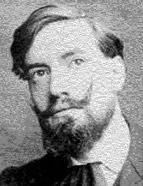

"It was from the very movement of the communes that the supreme concept of Nation was to be born in Portugal; and only when the causes had disappeared that hindered the development of the popular classes here, even more than in the rest of Europe, would democratic principles resume their march until the advent of the Republic." Was he thus seeking what could be called a "democratic conception of Portuguese history?" Possibly. "But in any science what matters is that its conceptions are...scientific." (Os factores..., pp. 14-15) Special emphasis was given to the revolution of 1383: "Portugal came of age; its domestic politics were dominated by secularist and civilist trends, an essential condition for the dignity and freedom of peoples; and the State reached the form of organisation that allowed it to solve the major problem of the expansion of Europe and the knowledge of the planet." (Os factores..., p. 157) The verticality of the citizen who could not accept the military-clerical dictatorship installed from 1926 onwards led him to take up arms and fight. When the uprising was defeated on 7 February 1927, he resigned and left the Homeland until 1957.
Never losing hope that one day the People and Elites would harmonise in a redemptive resurrection, as had been the case in 1383, in the Discoveries, in the Restoration, in the epic of the formation of Brazil, this is what he wished to see in the Republic in Portugal. He spent the late 1920s and 1930s in France and Spain, researching and teaching. In 1940, due to the German invasion of France, he returned to Portugal. However, his activity as a revolutionary republican had not been forgotten and the dictator had not forgiven him. He would soon be arrested, and along with others, sent to the Forte de Peniche [Peniche Fort] and "banished overseas" (Elogio Histórico de Bernardino Machado [Historical Praise of Bernardino Machado], p. 35). Brazil generously welcomed him at the time. He began working at the Gabinete Português de Leitura [Portuguese Reading Bureau] and at the Biblioteca Nacional do Rio de Janeiro [National Library of Rio de Janeiro]. In 1944 he joined the Instituto Rio Branco do Ministério das Relações Exteriores [Rio Branco Institute of the Ministry of Foreign Affairs], a school for the training of Brazilian diplomats, as a professor. There he taught História da Cartografia do Brasil [History of Brazilian Cartography] and História da Formação Territorial do Brasil [History of the Territorial Formation of Brazil] - from 1944 to 1950 - following the organisation of Itamaraty's Mapoteca [Map Collection], which he had been in charge of since 1942 and which was to serve as support to the research undertaken for the creation of a never accomplished Atlas Histórico do Brasil [Historical Atlas of Brazil]. His idea was to review the History of Brazil, which he already considered one of his favourite studies.
